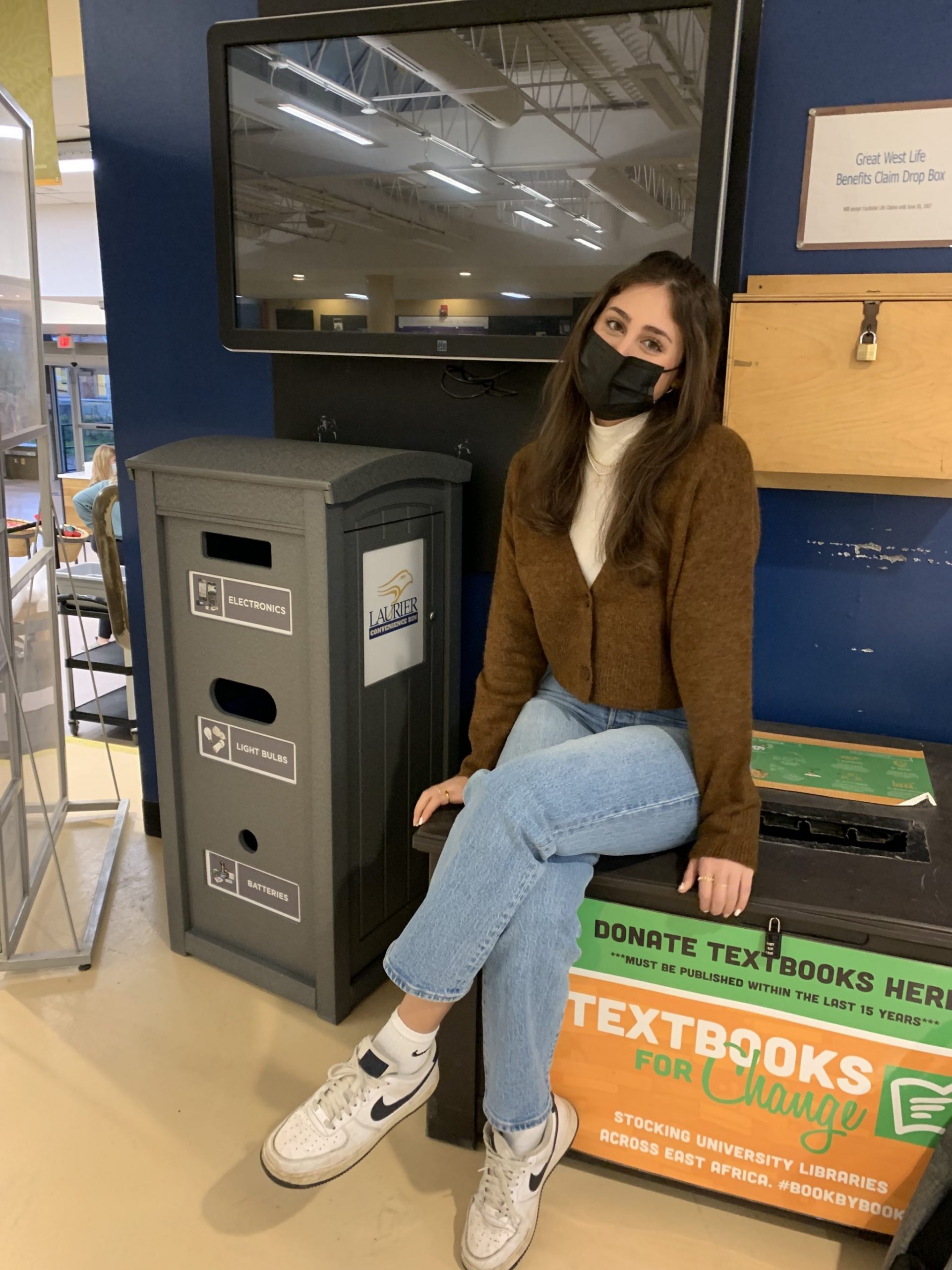Laurier students roll out e-waste bin on campus

Reena Sakran and Nathan Lam, third-year students at Wilfrid Laurier University, spearheaded the rollout of an e-waste bin on the school’s Waterloo campus.
The project, which the two students called Smart Hawk Recycling, started out as an assignment for a sustainability class.
“The assignment was to propose an idea for the Sustainable Hawk Fund, but it was your choice whether you wanted to submit it or not,” Sakran explained.
The Sustainable Hawk Fund allocates $30,000 each year to assist the development of sustainable ideas and projects in the WLU community.
Sakran and Lam followed through with the opportunity to present their idea to the fund.
Their project was accepted and they received funding for the rollout of an e-waste bin on WLU’s Waterloo campus.
The two students intend to take the project further than only one bin and further than one campus.
“We’re hoping to create more e-waste bins, hopefully one on the Brantford campus too. We just want to promote a sustainable community, which was our ultimate goal,” Sakran said.
The e-waste bin can be used to recycle any portable electronic device that cannot be used anymore. This includes cell phones, batteries, lightbulbs, and household electronics that can fit inside of the bin.
After deposit, electronics in the bin are taken to places such as Best Buy and community waste centres.
Sakran and Lam have been communicating with other parties that go beyond the mere disposal of electronics.
“We have also had talks with specific organizations and companies that re-use these products, recycling them and making them into new products,” Lam said.
The project addresses two of WLU’s sustainability goals, according to Sakran and Lam’s proposal.
The first goal that Smart Hawk Recycling addresses is “to reduce the overall amount of waste produced by the university by five per cent and increase the waste diversion rate by 10 per cent.”
The second is “to create strong relationships with people all around campus for the purpose of sustainability.”
To encourage more sustainable action around WLU’s campuses, Lam suggests students should “go outside of their comfort zone and try different courses.”
Sakran and Lam are not students in the environmental science program, but they took an elective in the field out of curiosity about the environment and sustainable action.
“It started out as an assignment for school and then it just became something amazing,” Sakran said.
“If you have an idea, even if it’s not polished, if you don’t think it’s that viable, if you think it is something that would help the environment in a positive way, just pitch it, roll with it.”
Sakran and Lam are committed to the continuation of the project even beyond their graduation.
“When me and Nathan graduate, we hope that this project will continue. Hopefully future students will take this on, maybe we can act as mentors in our fourth year and aid those students that want to take this project further,” Sakran said.


